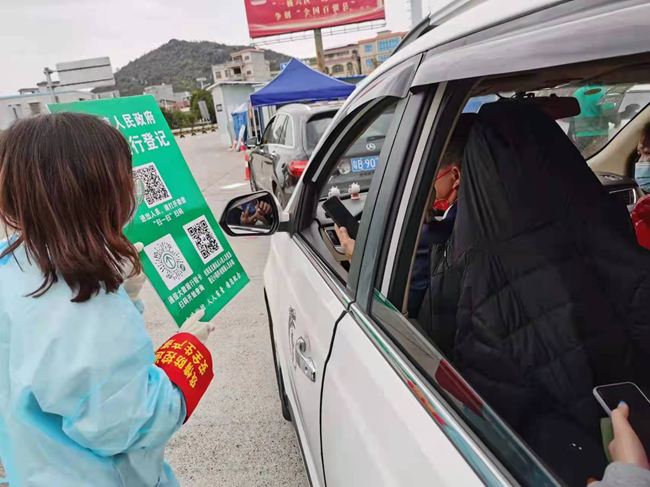‘Destination code’ facilitates epidemic prevention
2022-01-29
Starting from 4 P.M. on January 12, Guiyang County has set up service stations for epidemic prevention and control at the entrances and exits of three expressways in the county—Taihe, Chonglingjiang and Liufeng—to register and check the health code, travel code, body temperature and the nucleic acid test result of those arriving in Guiyang.

As the Spring Festival is approaching, the number of people returning Guiyang from other provinces by car has increased gradually.
During the tour inspection, the Guiyang COVID-19 Prevention and Control Headquarters found that people entering Guiyang often gathered in groups when filling in their personal information, which put them at risk of cross-infection.
In addition, illegible writings brought great difficulties to the following tracing and management.
To effectively solve the above problems, the “destination code” was put into use on January 17. It enables drivers and passengers to report their departure cities, destinations, health codes, travel records, nucleic acid test results and other information by scanning the code, which effectively prevents persons entering Guiyang from longtime waiting and gathering.
An officer at the service station told the reporter that the application of the destination code has eased the burden of frontline workers and improved efficiency by reducing procedures.
Besides, the data uploaded by the code can be delivered to 22 towns and villages in the county in the first time, which helps to realize accurate management and control.
As of January 20, over 7,000 pieces of information were recorded through the “destination code” which has been applied in shopping malls, supermarkets, hospitals and other densely populated places.




